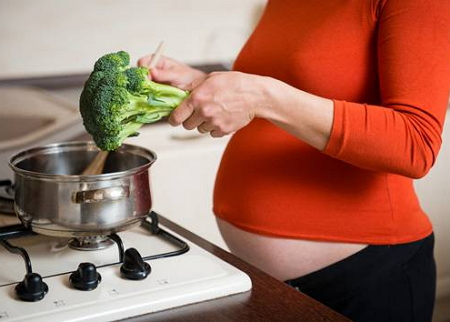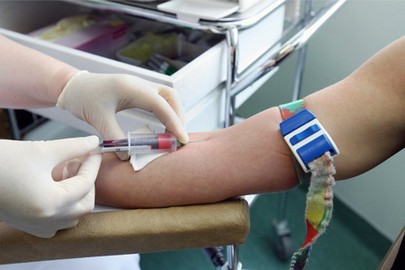Iron in Your Pregnancy Diet

Contents:
- Why does our Body Need Iron so Much?
- Causes of Deficiency Iron During Pregnancy
- Deficiency Symptoms Iron
- The Necessary Analysis
- Include Enough of Iron-Rich Food Stuffs in Your Diet
- How to Replenish Iron in Pregnancy
- Whether You Need to Take Additional Medication?
Why does our Body Need Iron so Much?
Iron is an essential mineral nutrient that, in addition to various metabolic processes, participates actively in the process of blood formation. Iron is not produced in the human body, and therefore, it must be replenished with food. In the small bowel, the iron is released and transported through the bloodstream to the bone marrow. This important mineral nutrient is involved in the creation of red blood cells (erythrocytes), the main function of which is to transfer oxygen to organs and tissues. In addition, the iron is also responsible for the growth and development of the brain of a child during pregnancy.
Causes of Deficiency Iron During Pregnancy
The human body is able to accumulate iron. The excess iron during pregnancy, which was not used by the body immediately, can be kept "as a reserve". As the need for iron is often left unsatisfied, the half of women (even before pregnancy) suffers from iron deficiency in the body. The volume of blood of pregnant women increases about 30-40 %, this is due to the fact that growing uterus starts to be intensively supplied with blood. In order to produce enough blood by the body, the need for iron doubles.
The iron is one of the most important components of food during pregnancy. WHO recommends that pregnant women should consume about 30 mg of iron every day.
During the period between the 8th and the 22nd weeks, the pregnancy has the greatest need in the iron. At this time, it is almost impossible to get its sufficient quantity only from food stuffs, and as a result, a severe deficiency in iron often happens in the last trimester of pregnancy.
Deficiency Symptoms Iron
The lack of red blood cells can cause anemia. In this case, the placenta will not be fully supplied with oxygen, which in its turn will reduce the flow of oxygen to the baby and will have a negative impact on the development of his brain. Anemia increases a risk of miscarriage or premature birth, and can also cause extensive blood loss during childbirth.
The Necessary Analysis

The iron deficiency can declare itself differently. To exclude a serious iron deficiency during pregnancy, the doctor will regularly check the level of hemoglobin in the blood. In addition, the level of iron in the body can be defined using blood ferritin analysis. The iron deficiency is replenished through diet and special food supplements. When the level of iron in the blood is particularly low and reaches its critical value, an urgent blood transfusion is applied. However, this rarely happens.
Include Enough of Iron-Rich Food Stuffs in Your Diet
With the introduction of food stuffs rich in iron into the daily diet, you will be able to meet the increased need in this mineral nutrient during pregnancy. We have prepared for you a list of food stuffs with a very high iron content, which can be eaten during pregnancy.
- Lean red meat, shellfish, eggs and fish. Regularly eating these products, you will be able to replenish iron stores in the body.
- Fried liver also contains much iron. However, we do not recommend the use of dishes from liver during the first trimester.
- Beans, nuts and whole grain products, cooked cereals or oatmeal. These food stuffs are not only rich in iron, they also contain lots of food fibres. Therefore, these products should be included in your diet every day.
- Fruit. Apples, plums, bananas, pears, apricots, persimmons also contain much iron.
- Dried fruit. Dried apricots are particularly rich in iron.
- Natural red color juices: grape, cherry, pomegranate.
- Vegetables. Dark green vegetables as spinach, broccoli, peas are more rich in iron. Fennel and beet-roots are also good sources of iron.
How to Replenish Iron in Pregnancy
Salads of fresh nettle leaves or dishes sprinkled with its seeds will be useful. However, it is important to know that many plant products contain substances that inhibit iron absorption, such as phytic acid in some cereals, soybeans and rice or oxalic acid in spinach and rhubarb.
The simultaneous intake of the vitamin C can help the body in the digestion of plant origin products. For example, a small amount of lemon juice can be added to salads and hot dishes containing iron.
Whether You Need to Take Additional Medication?
Even an iron-rich diet, in many cases, is not enough for the daily needs of a pregnant woman. Because, as a rule, the body absorbs only about 10 % of the iron coming from food. If a woman during pregnancy has an iron deficiency, she should start to eliminate it as soon as possible. If necessary, you can use special iron food supplements.
Note:
- The dose of an iron supplement should by identified by the doctor. He may prescribe a blood test to determine the exact extent of iron deficiency and to avoid possible overdoses.
- When taking iron supplements, stomach pains or constipations can happen. You can smooth the side effects of drugs, if you do not take them on an empty stomach, as it is written in many instructions, but at mealtimes.
- The processes of absorption of supplements of magnesium and iron can interfere with each other. Thus, if you take iron supplements, magnesium products can be taken no earlier than two hours later.